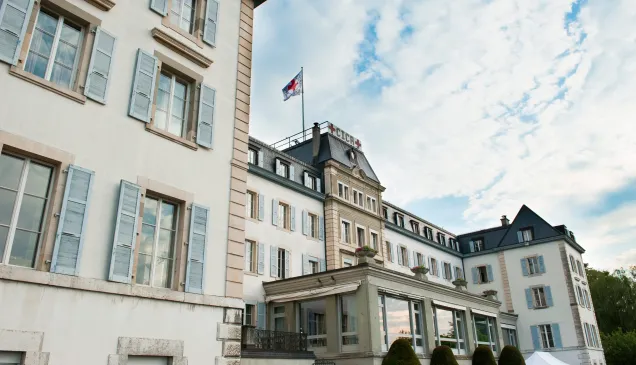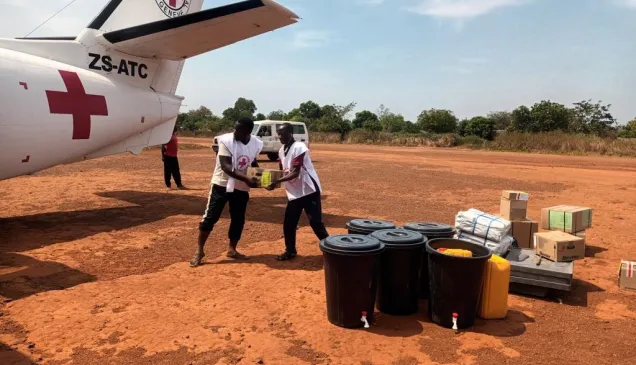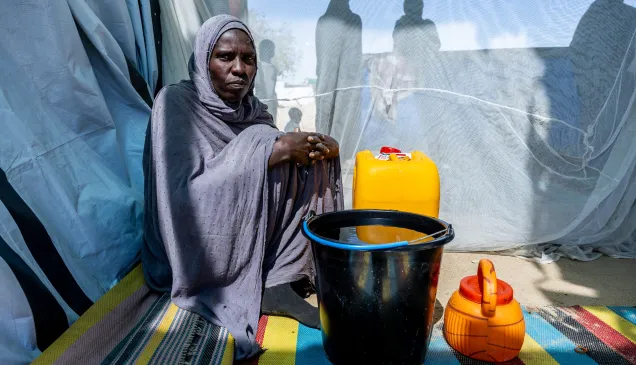ICRC at the UN: Urban warfare, digital threats and prisoners of war obligations are all humanitarian issues of high importance
New York (ICRC) – A statement by the International Committee of the Red Cross (ICRC) delivered by Mrs. Laëtitia Courtois, permanent Observer and head of delegation to the U.N., to the United Nations General Assembly, 77th Session, Plenary Meeting of the coordination of humanitarian and disaster relief assistance of the United Nations, including special economic assistance:
6 December 2022
Mr. President, Excellencies, Distinguished Delegates,
We are meeting this year again at a time of significant humanitarian challenges compounded by armed conflicts, climate change and a global food and energy crisis. Thousands of colleagues are mobilized in places like Ukraine, Afghanistan, Syria, Yemen, Israel and the Occupied Territories, the Sahel Region, Myanmar, Ethiopia, Iraq, DRC and Haiti to uphold the principle of humanity. In this context, the ICRC calls on all parties to facilitate the work of medical and humanitarian personnel, respect their safety and security, and preserve humanitarian space.
This year, we would like to draw your attention to three important issues which continue to shape the operational landscape of impartial humanitarian organizations:
1/ Urban warfare, including Explosive Weapons in Populated Areas
The urbanization of warfare is a reality for populations and humanitarian agencies. Last month, over 80 states adopted a milestone political declaration to improve the protection of civilians from the use of explosive weapons in populated areas, one of the major causes of civilian harm in today's armed conflicts. This collective achievement has the potential to change the fate of hundreds of thousands of persons.It is a major step towards strengthening the protection of civilians and essential services and respect for international humanitarian law. For the first time in an instrument of this kind, States acknowledge the gravity of the problem and commit to taking concrete actions to address it, including by restricting or refraining from the use of explosive weapons in populated areas. It sends a powerful signal that belligerents cannot continue fighting in populated areas the way they have until now. This change in mindset and perspective is crucial.
Yet, we are only at the beginning of a long process. We urge you to work together to broaden support for the Declaration and to effectively implement it, turning ambitious commitments into concrete measures to alleviate human suffering during armed conflicts and in their aftermath.
The ICRC will continue to work closely with other parts of the International Red Cross and Red Crescent Movement to prevent and respond to the devastating and cumulative impacts of urban warfare on essential services such as water and sanitation, electricity, or healthcare. We also call on all member states to operationalize Security Council Resolution 2573 on the protection of essential services and comply fully with international humanitarian law (IHL).
2/ Digital threats
In recent years, several cyber operations have affected states' critical civilian infrastructure, such as nuclear plants, electricity grids and water systems, as well as humanitarian organizations.The disruption or destruction of outer space systems serving critical infrastructure could also have widereaching consequences for the civilian population, including humanitarian organizations.
In addition, the growing involvement of civilians and civilian companies in military cyber operations and other digital activities during armed conflict exposes them to harm and risks undermining the principle of distinction, a central tenet of IHL. In this respect, the ICRC urges states to consider the risk of adverse humanitarian consequences when making any decision at the national and multilateral levels in relation with cyber operations during armed conflicts.
Essential questions on the protection of civilian life require further discussion and clear positions from states, taking into consideration the specific characteristics of the ICT and space environments.In this context, we call on states to interpret and apply existing rules of IHL in good faith to ensure sufficient protection for civilians, civilian infrastructure and civilian data.States should also take measures to ensure that humanitarian organizations are protected online as they are offline and that civilians are protected against harmful information such as hate speech.In October, the ICRC also announced that, in close collaboration with Movement partners, it would seek States and other stakeholders' views on whether and how to develop a digital emblem, i.e., a digital signal to identify medical facilities and the ICRC and IFRC and provide an additional layer of protection against cyber-operations.
3/ IHL obligations related to Prisoners of War and Missing in international armed conflicts
IHL requires, in international armed conflict, that captured soldiers and interned civilians be treated humanely, that they be allowed to communicate with their family, and that the ICRC be granted regular access to them to verify conditions of their detention and to restore contacts between those persons and their families.In such conflicts, States must account for protected persons, in particular by sharing relevant information on Prisoners of War, wounded, sick and dead military personnel and other protected persons in their hands via their National Information Bureaus with the Central Tracing Agency of the ICRC, this for onward transmission to their country and families.
States must also ensure that the dead are treated with dignity and properly identified. Measures such as these are critically important to prevent people from going missing and fulfil the right of families to know the fate and whereabouts of their relatives.In light of the resurgence of international armed conflicts, we call upon all states to redouble political efforts and leadership to respect and to ensure respect for these fundamental provisions through concrete and timely implementation.
Excellencies, distinguished colleagues,
Now is the time to redouble diplomatic efforts to put our shared humanitarian values at the center of international cooperation. Multilateralism matters. IHL and humanitarian principles matter.It is through renewed collective action that we will preserve our common humanity and make a difference in the lives of millions of people affected by armed conflicts and other humanitarian emergencies.
Thank you.



